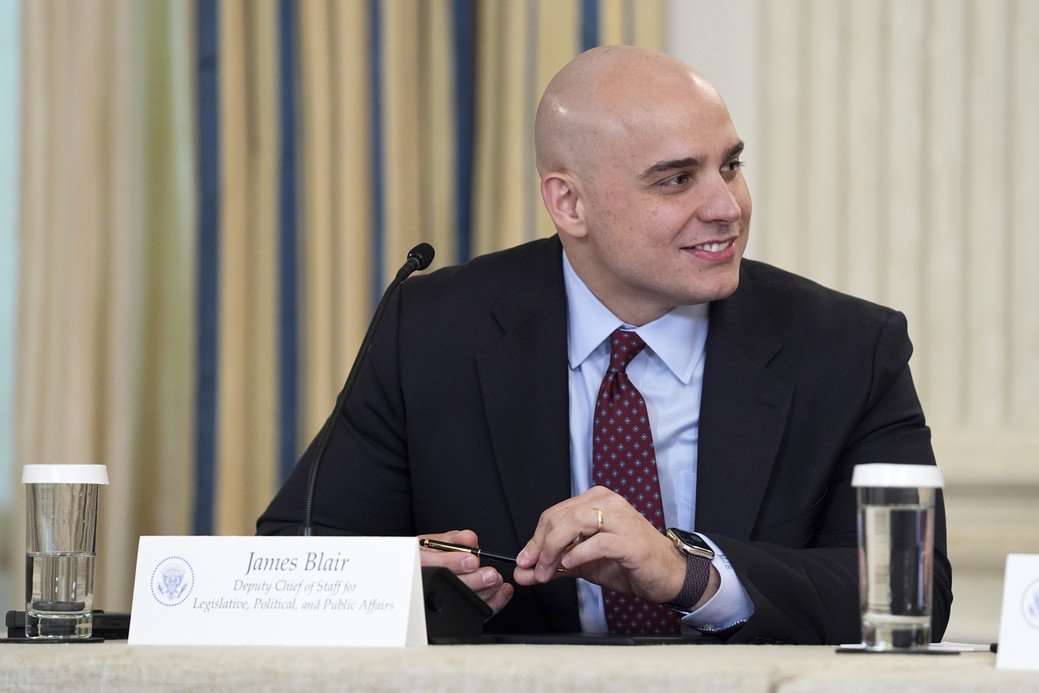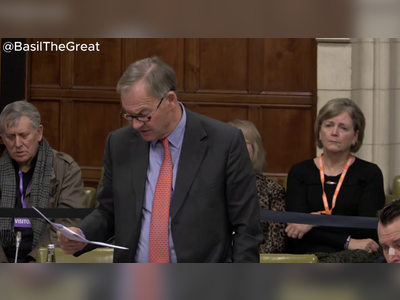
White House Moves Forward With Health-Care Bill, Eyes Reconciliation to Secure Passage
Administration prepares new health-care legislation and signals willingness to use congressional reconciliation process for faster approval
The administration announced on Tuesday that it plans to introduce a health-care bill and is considering the use of the fast-track reconciliation process to ensure its passage.
Deputy Chief of Staff James Blair told attendees at a policy breakfast that while the White House favours bipartisan backing, ‘‘if that path is foreclosed, there is the partisan path of reconciliation as well.’’
By invoking reconciliation—a legislative tool that allows a simple majority in the Senate to approve budget-related measures—the administration suggests it may bypass traditional filibuster hurdles for health-care or tariff legislation.
Blair further revealed that the forthcoming proposal might incorporate ‘‘probably the Trump tariff dividends and … interest in locking in tariffs,’’ tying trade policy to the health-care agenda.
Republican lawmakers privately indicate the framework is likely to resurrect long-standing GOP priorities: reducing insurance costs, expanding health-savings accounts and rolling back portions of the Affordable Care Act.
However, some in the party remain sceptical about relying on reconciliation again given strict procedural rules and the thin Senate majority.
The move comes in the wake of the ‘‘One Big Beautiful Bill’’ reconciliation package passed earlier this year, which has already reshaped the budget and set a precedent for using majority rules.
Blair’s comments signal the White House’s readiness to leverage that path if bipartisan consensus fails.
Congressional Republicans say they expect formal White House guidance and a timeline for the new legislation ahead.
White House officials describe the initiative as the next phase of economic reform under President Donald Trump, framing health-care change as central to affordability, small-business relief and economic growth.
The administration’s next steps include releasing a bill outline and working with Congress on options to secure enactment before the next fiscal year.
Deputy Chief of Staff James Blair told attendees at a policy breakfast that while the White House favours bipartisan backing, ‘‘if that path is foreclosed, there is the partisan path of reconciliation as well.’’
By invoking reconciliation—a legislative tool that allows a simple majority in the Senate to approve budget-related measures—the administration suggests it may bypass traditional filibuster hurdles for health-care or tariff legislation.
Blair further revealed that the forthcoming proposal might incorporate ‘‘probably the Trump tariff dividends and … interest in locking in tariffs,’’ tying trade policy to the health-care agenda.
Republican lawmakers privately indicate the framework is likely to resurrect long-standing GOP priorities: reducing insurance costs, expanding health-savings accounts and rolling back portions of the Affordable Care Act.
However, some in the party remain sceptical about relying on reconciliation again given strict procedural rules and the thin Senate majority.
The move comes in the wake of the ‘‘One Big Beautiful Bill’’ reconciliation package passed earlier this year, which has already reshaped the budget and set a precedent for using majority rules.
Blair’s comments signal the White House’s readiness to leverage that path if bipartisan consensus fails.
Congressional Republicans say they expect formal White House guidance and a timeline for the new legislation ahead.
White House officials describe the initiative as the next phase of economic reform under President Donald Trump, framing health-care change as central to affordability, small-business relief and economic growth.
The administration’s next steps include releasing a bill outline and working with Congress on options to secure enactment before the next fiscal year.












